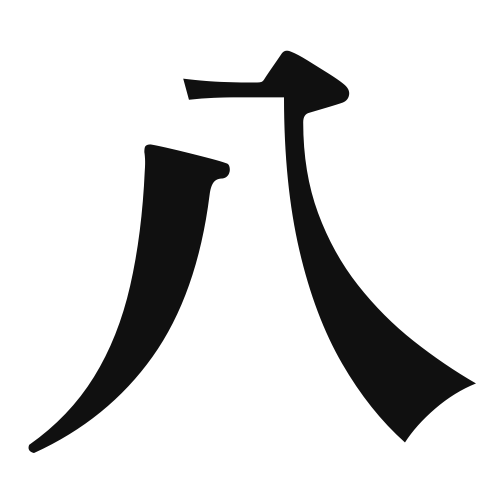1. Overview of Meaning
The kanji “八” (pronounced “hachi” in Japanese) means “eight.” It is a simple numeral that represents the quantity of eight in counting.
2. Formation and Radical
The kanji “八” is a pictogram that visually represents the concept of eight. It is one of the simplest kanji characters and is classified as a pictographic character. The radical for “八” is also “八,” which signifies its meaning related to numbers.
3. Examples of Usage
Common words and phrases that include “八” are:
- 八つ (やっつ, yattsu) – eight (used for counting objects)
- 八月 (はちがつ, hachigatsu) – August (the eighth month)
Example sentence in daily conversation:
「私は八つのリンゴを持っています。」(Watashi wa yattsu no ringo o motteimasu.) – “I have eight apples.”
4. Synonyms and Antonyms
Similar kanji with related meanings include:
- 七 (しち, shichi) – seven (one less than eight)
- 九 (きゅう, kyuu) – nine (one more than eight)
Antonyms or contrasting kanji include:
- 一 (いち, ichi) – one (the smallest numeral)
- 十 (じゅう, juu) – ten (the next numeral after eight)
5. Cultural and Historical Background
The number eight holds significance in Japanese culture, often associated with prosperity and good fortune. In traditional practices, the number is considered auspicious.
Proverbs and idiomatic expressions that include “八” are:
- 八方美人 (はっぽうびじん, happoubijin) – literally “beautiful person in all directions,” referring to someone who tries to please everyone.
